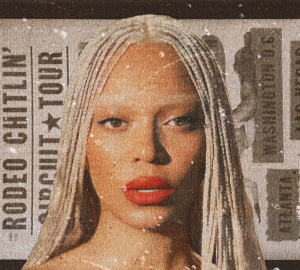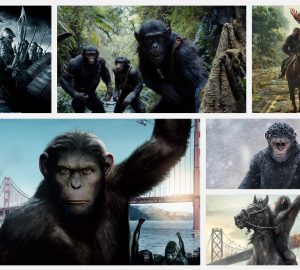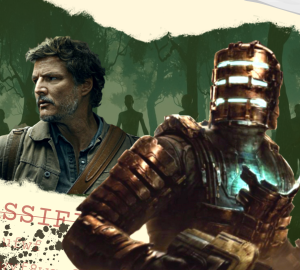Q&A with former Fortune 500 CEO and author Jason Garner

Photo courtesy of Jason Garner.
College students are not the most health conscious. In fact, most members of this group tend to sacrifice sleep, nutrition and time for academic success. But students aren’t the only ones neglecting themselves to get ahead. These bad habits often evolve and transcend into the professional world. Jason Garner, former CEO of Global Music at Live Nation — the nation’s largest concert promotions company — knows this feeling all too well.

Garner had the type of success that most people dream of, making “Fortune” magazine’s top 20 highest paid under 40 list twice. As he climbed the corporate ladder, he struggled in his personal life. After leaving the head of the corporate board room to sit at the feet of monks and other masters of minds, Garner found a new definition of success. Does this mean we have to choose between financial success and personal happiness? No. Through his journey, Garner discovered that you can have a life full of professional and personal joy. He shares this voyage in his new book “…And I Breathed: My Journey from a Life of Matter to a Life that Matters.”
As a student it’s not easy to have peace of mind while expanding your mind. Below, Garner responds to questions on balance, workload, sacrifice, spirituality and success.
Q: I’m aware that people are not their professions, but I want to get a clear idea of your career transition through life. As the global music CEO for Live Nation what did you do? As a consultant and entrepreneur what do you do? And what did you do in between these two titles (your spiritual journey) to get to where you are now?
Live Nation is an amazing company. As CEO of Global Music at Live Nation I was responsible for a team of 10,000 or so employees around the world who produce around 15,000 concerts a year. It was, and is, an amazing group of people who are passionate about delivering live music to fans around the globe. I oversaw that effort along with Michael Rapino (CEO of Live Nation), who was my boss, mentor and in many ways my first guru. When I left Live Nation I began a journey of learning about myself — my body, mind and spirit — with many great teachers around the world. I learned yoga and spirituality with Guru Singh, health with David Wolfe, Chinese Herbs with Ron Teeguarden, Zen Buddhism with Shaolin Master Wang Bo and the Shaolin Monks in China, and many other amazing teachers. Now I share the combination of my life’s experiences with a small group of people I consult with and the larger community through my book, my blog and on social media.
Q: SCAD teaches on a Quarter System (10 weeks). As art students we’re expected to learn and then produce creative original works in short timespans. Speaking for myself, I feel as though I’m always working and crafting ideas for projects. Sometimes it feels overwhelming. You seem to have discovered the “secret” to coping with the stresses of a heavy workload. What advice would you give art students on balancing workloads?
First, I don’t ever want to be the guy who comes into a situation and says, “I’ve got it all figured out.” You and your readers are smart men and women who are walking your own paths, and I really honor that. What I can share with you, is what I’ve learned works in my life and in the lives of many of my teachers and friends.
The word balance is one that people use a lot. I think when we are engaged in learning, balance is a really difficult thing to maintain because we are always diving into new learning experiences.
What I’ve found really helpful in my life is to develop a daily practice of caring for myself that I do every day, regardless of what new business or learning opportunity I’m engaged with in the moment. This is a really important experience for me because it says that my feelings matter too. Just like a school or work deadline is important so is the health of my body, mind and spirit.
I begin each day by stretching into the day with yoga. This doesn’t have to be complicated. It’s really just a chance to stretch my body and open myself up to the experience of the day. My teacher is Guru Singh. But there are many wonderful yoga teachers whose videos and books you can find. And when all else fails just sit and stretch the way you were taught in sports or PE. Touch your toes, let the blood flow to your head. Reach for the heavens and create space for your internal organs. Move side to side and loosen up the hips and shoulders. It doesn’t have to be complicated — remember this is a time to love yourself.
After stretching I sit quietly in meditation. This is another activity that society tends to make very rigid rules about. But for me that’s not what it’s about. Meditation, for me, is the practice of learning to love myself. That means it’s okay to have thoughts in your head, it’s okay to feel jumpy, and it’s okay to be human and be yourself. Sitting in meditation is simply a time that I dedicate to being present with myself … it’s an “I love you” to my inner being. Again there are many great teachers in this space — Guru Singh who I mentioned above. Another of my favorite teachers is Sharon Salzberg who has many, many free videos online and a lot of wonderful books. Those resources are great, and if you don’t have time for that right now just take a walk, breathe and be present to yourself … that is as great a mediation as any special posture or technique.
The third part of my daily practice is loving my cells by eating nutrient-dense foods. This means getting a lot of leafy green vegetables into my body, along with Chinese herbs and other supplements. The easiest way I have found to do this is by drinking green juice made from fresh vegetables and fruit. You can make it at home or buy a juice from the many juice bars that are opening around the country. As far as Chinese herbs go, I get all of mine from DragonHerbs.com which owned by my teacher, Ron Teeguarden, who took me to China to the Shaolin Temple. Again though, nutrition is about loving your cells. So make it joyful. Find fresh, organic, foods and supplements you like and each time you consume them send a message of love and care to your body.
This, for me, is balance — a life of material success combined with love and care for myself.
Q: There is a common saying, “There’s no success without sacrifice.” Could you share some of the sacrifices you made to become Live Nation CEO versus the sacrifices that you make as an entrepreneur and consultant? Which sacrifices do you regret (if any) and which sacrifices are considered “normal” healthy sacrifices?
Going back to our discussion above about balance, I don’t necessarily buy into this saying. What people are usually referring to when they say this is sacrificing your health, your emotions and your mental well-being for material success. We hear people say all the time, “I’ll care for myself after I make it.” In my experience, that day didn’t come. I just kept prioritizing business success over my own well-being … I was constantly sending a message to myself that my feelings didn’t matter. As we look around ourselves we see the toll that practice is taking on our community — so many people we know are sick, worn-out and feeling unloved. That no longer meets my definition of success.
At the same time, I also don’t think we have to check out of life and business to find true success. It’s just a matter of what we practice. When we include the practice of loving and caring for ourselves along with the practice of making money or succeeding materially, I believe we have the opportunity to experience a success that is sustainable and truly fulfilling.
Q: How do you define spirituality and do you think it’s necessary to have some form of spirituality in order to be a successful person?
I can pinch myself and experience my physical body. I can emotionally feel something and experience the emotional me. And then there is something else … something larger that I know I’m part of. It’s the part of me that is connected to nature and to other beings … my spirit.
For me, connecting with that part of myself, that part of us all, is part of what I define success as … just like connecting to my physical and emotional self.
I find this connection in meditation, but also sometimes in just taking a walk in nature, in holding my wife and feeling the beat of her heart, in talking with my children and just in breathing deeply and being present in life.
In my life, without this, I feel I am missing the bigger picture.
Q: I think that art schools are some of the most competitive institutions. Everyone wants to stand out and produce the best work. Sometimes we value ourselves equally to our work. I read a response on a blog post of yours that said “we are human ‘beings’ not human ‘doings’.” I agree that it’s important for us to separate “who we are” from “what we do.” Can you give some tips on how to do this?
What you described is part of the human experience — creating something, sharing it and hoping that others find value in it. This is part of what we do as humans. In your case it’s art — that’s a very personal expression. So of course you want to touch people with that expression of yourself.
What I found in my life, though, was that I had gotten so wrapped up in wanting to do good that I had forgotten that I am good. My entire self-worth was centered around the work I was creating. So I was good on the days that a concert sold a lot of tickets and I was bad on the days when a show didn’t go well or an artist was unhappy with something my team had done. This created a lot of pain and suffering … and deep inside I never felt loved for being me.
I found that just having the awareness that we are lovable just for being ourselves is the beginning. We will always want to do good, to win and to share our life’s work with others. I just found that I needed to have a place where none of that mattered, where I knew I was perfect just the way I was and where my feelings mattered.
I’ve found that through meditation and my daily practice of loving myself. That’s really what a daily practice is all about. Just like an athlete practices to prepare for the rigors of a sport, my daily practice prepares me for all the moments that life knocks me around. It gives me a place inside to go where I know that all is well.
Q: I want to call you somewhat of a life coach, correct me if I’m wrong. You’ve been there, done that and wrote the book. Most of us will never become CEOs of Fortune 500 companies and then leave it all to go on a spiritual journey. What were some of the obstacles on your journey to accomplishing your goals?
I consider myself a student — just like you. I don’t ever want to lose that feeling. You know what I mean? The humility and wonder that goes into approaching each day wondering, “what will I learn today?” That’s what life is all about for me.
The obstacle to that, I think, is losing that childlike wonder. In my life I got so wrapped up in things having to go the way I wanted them to go that I became a bully towards myself and others — always wanting to be right or else. That feeling came from my belief that if I wasn’t right, if things didn’t go my way I wouldn’t be loved.
I try to keep that front and center now in my life — I take time to laugh, to play and to find the wonder in everyday life.
Q: If you had the spirituality that you have now, when you started promoting and producing concerts back then, would you still be working in that industry? Why or why not?
[Yeah], I think what you are asking is can you be spiritual and be a business person? And I think the answer is 100 percent yes. In fact, in many ways they are one in the same. I don’t look at my life as buckets — a spiritual bucket and a business bucket, it’s just one big bucket called life. So from that perspective you can have any job you want and, in the process, care for yourself and create a life that nurtures you.
Q: Your journey has led you to write the book “… And I Breathed.” What can readers gain from this book? And what can art students take away from it?
I wrote the book in a really honest and vulnerable way. I didn’t want to write a self-help book … there are enough of those. I sat down to share my journey, my hopes, my fears, my triumphs and my pain in a way that I hope would allow the reader to see themselves and them draw whatever conclusion is right for them. So I hope all the readers take away the feeling that is authentic and true to themselves at the moment they read the book.
Q: Sometimes it’s difficult to know what to ask because you can’t ask about what you don’t know. With that being stated, I think that SCAD produces some of the top creative professionals. What final, message do you want to share with SCAD students and other future artistic professionals?
Ha. Well you asked a lot. I haven’t written this much since I wrote the book. Seriously, I think you’ve done a great job and sharing with you has been a real pleasure.
I want to answer your question this way. If I could go back in time and share with the younger version of myself, the Jason who was in his early 20s, working hard to make it, worried about his future and who desperately wanted to succeed — I would first give him a big hug, I’d tell him that I love him for who he is not what he does and I’d give him a big green juice, sit under a tree and just enjoy life.
Big hugs to you and your readers.
This sums up the questions that I have. Thanks again for offering to share your experiences with us.



























